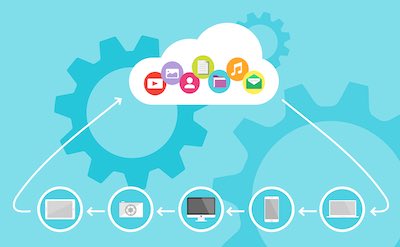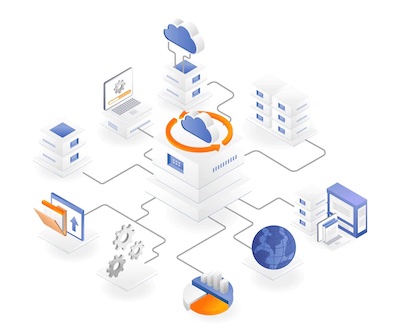 Today’s businesses require an IT infrastructure that can support rapid, dynamic growth without sacrificing performance. As a result, cloud server solutions have become increasingly popular as a means of achieving these objectives. Cloud server solutions allow users to access the processing power they need at any given moment rather than having to meet the needs of peak usage. This article will explain what cloud servers are, how they work and why they make your business more efficient.
Today’s businesses require an IT infrastructure that can support rapid, dynamic growth without sacrificing performance. As a result, cloud server solutions have become increasingly popular as a means of achieving these objectives. Cloud server solutions allow users to access the processing power they need at any given moment rather than having to meet the needs of peak usage. This article will explain what cloud servers are, how they work and why they make your business more efficient.
What is a Cloud Server?
Cloud servers are virtual servers accessed over the internet. Cloud servers allow users to scale up or down their server capacity based on their needs at any given time. This is achieved by sharing physical servers among a group of customers in a way that allows each group to fully control their software. As a result, users do not have to pay for their full usage of the server. Cloud servers are managed by third-party cloud hosting providers. While most often used in the context of web hosting, cloud servers can be used for any type of server.
How Do Cloud Servers Work?
Cloud servers are managed by third-party cloud hosting providers. Companies typically outsource their IT infrastructure to these providers so that they can dedicate their time to their core business. When you use cloud servers, you are effectively renting remote server space and the data center services needed to run it. To make this scalable, cloud hosting providers use virtualization technology. Virtualization enables multiple users to access their virtual server on a single physical server. This enables cloud providers to offer more server space that can be dynamically adjusted based on customer demand. This level of customization allows users to scale up or down their server capacity as needed. Cloud servers are accessed via a Virtual Private Network (VPN), which can be hosted in the cloud or on a remote computer or device. Users can access their data remotely and manage it through an internet browser. Cloud servers can be used to host live websites, databases or any other type of software.
Benefits of Cloud Servers
Cloud servers allow businesses to scale up or down their server capacity as needed, meaning they do not have to pay for any unused capacity. This makes cloud servers significantly more cost-effective than investing in your own hardware. Cloud servers allow businesses to focus on their core competencies, rather than spending time managing their IT infrastructure. If your business relies on a lot of data, cloud servers can be more secure than storing data on your hardware. Due to the high level of encryption and security used by cloud hosting providers, you can be sure that your data is safe in the cloud.
Types of Cloud Servers
There are several different types of cloud servers. Infrastructure as a service (IaaS) allows users to access the underlying hardware needed to host a cloud server. This provides users with the flexibility to use different types of hardware. Platform as a service (PaaS) allows users to host their own software or applications on a cloud server. Software as a service (SaaS) allows users to access fully hosted software remotely. Hybrid cloud servers combine two or more of the above types of cloud servers to provide a hybrid solution that meets the needs of a wide range of business needs.
Key Things to Consider Before Moving to the Cloud
While cloud servers allow businesses to scale up or down their server capacity as needed, you should consider what happens if the cloud servers experience an outage or are unavailable. For example, if your business relies on cloud servers for live data, you need to have a backup plan in case that data is not accessible. Furthermore, you should make sure that you have a reliable internet connection to ensure that you can access your data at all times. You should also make sure that the cloud server provider you select meets your security standards and requirements. This can be challenging because you may not be able to access the server to check for yourself. In such cases, you should select a provider with a good reputation for security.













